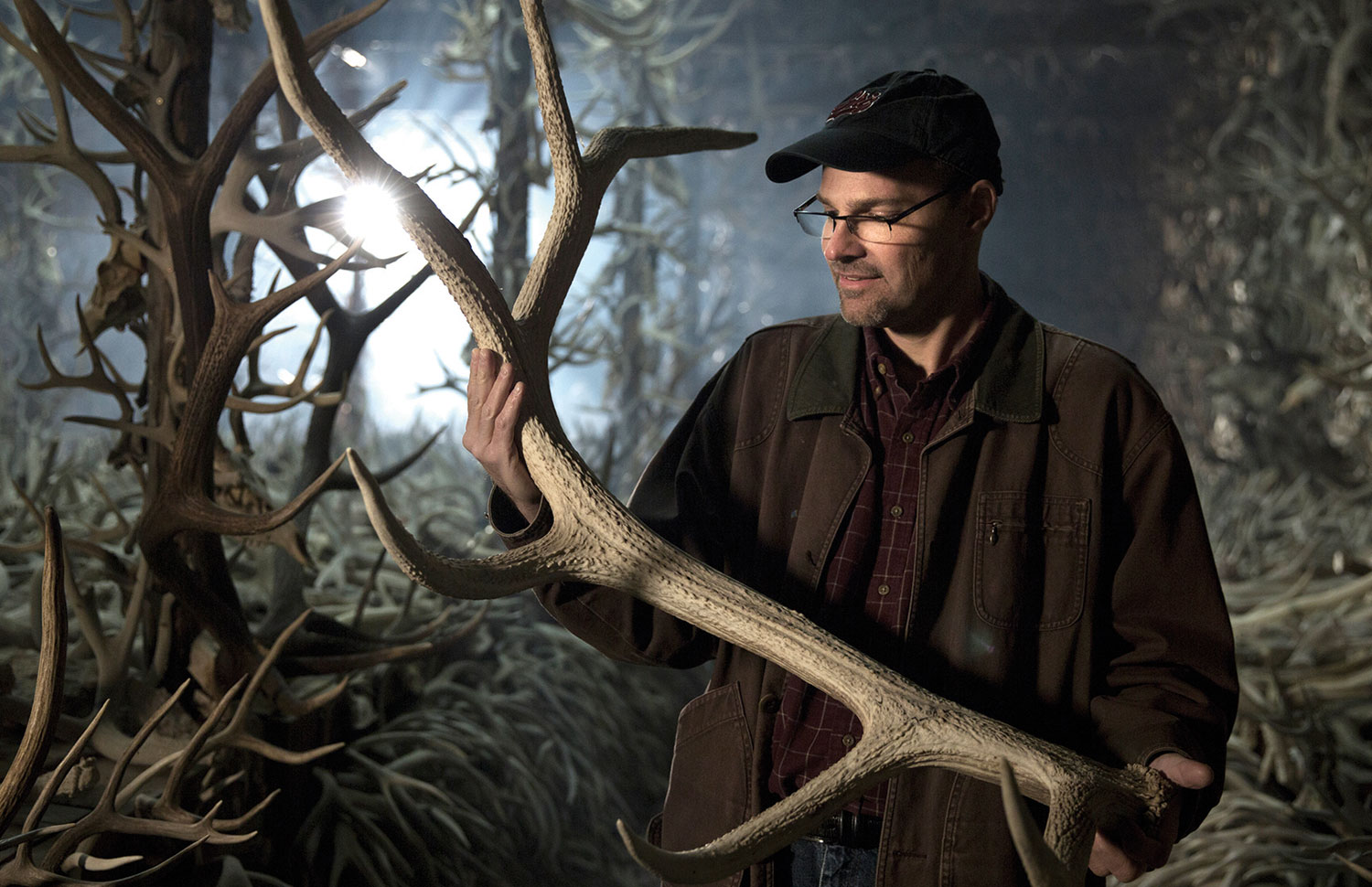- Editorial Offices
- 325 Brantly Hall
- Missoula, MT 59812
- (406) 243-2488
- themontanan@umontana.edu
- Icons By Maria Maldonado
UM biology professor stars in BBC’s ‘Natural World’

The research and discoveries of UM biology Professor Doug Emlen are the focus of an hourlong BBC documentary titled “Nature’s Wildest Weapons: Horns, Tusks and Antlers.”
The program is part of BBC’s longest-running wildlife series, “Natural World.” It premiered in April on BBC2.
It was inspired by Emlen’s 2014 book, “Animal Weapons: The Evolution of Battle.” The UM researcher has spent 30 years investigating how weapon-bearing species developed extreme ways to gouge and gore one another using their natural weapons. The documentary explores how animal arms races may relate to their human equivalents – all the way up to nuclear warheads.
Featured subjects in the film include Darwin’s and rhinoceros beetles, which have pitchfork-like horns that measure one-third the length of their bodies; American elk, who deplete their skeletons to grow enormous antlers; and the U.S. Air Force’s development of the long-range Minuteman III nuclear missile, Earth’s most lethal weapon to date.
Sporting a Griz hat, Emlen takes viewers to various locations in Montana and Washington, including a ranch with elk overlooking Flathead Lake and a building crammed with 17,000 shed antlers called Jim’s Horn House in Three Forks.
The film is directed by Peter Fison and narrated by actress Nina Sosanya.
Emlen says the BBC and the PBS program “NOVA” collaborated to fund production, and that NOVA will air an American version later this year.